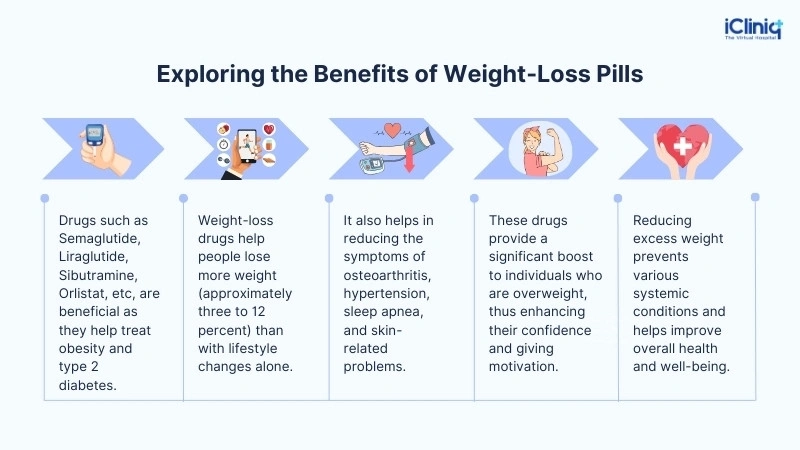Many people are asking questions about semaglutide as this weight management medication gains attention. Semaglutide prescriptions have increased fortyfold in the last five years, with over nine million prescriptions written in just the final quarter of 2022. This medication represents the first drug since 2014 approved for chronic weight management in the 70% of American adults struggling with obesity or overweight conditions.
The clinical results speak clearly. Participants in clinical trials lost an average of 15% of their body weight compared to just 2.4% with lifestyle changes alone. Semaglutide also reduces the risk of stroke and heart attack by 20% in people with obesity and cardiovascular disease history. Though approximately 1.6% of Americans currently take some form of this medication, studies suggest that over 53% of the US population would be eligible for a semaglutide prescription.
We recognize the importance of balanced information when making health decisions. Our goal is to help you understand both the benefits and potential side effects of semaglutide treatment. Through this article, we provide the clinical insights you need to determine whether semaglutide aligns with your specific health goals and circumstances.
Is Semaglutide Right for Your Health Goals?

Image Source: Connecticut Facial Plastic Surgery
Lifestyle changes represent the foundation of weight management. Yet for many individuals dealing with obesity, diet and exercise alone produce limited results. Conventional lifestyle modifications typically yield only a 5-10% reduction in baseline weight, which may be insufficient for those with significant weight management needs.
When lifestyle changes aren’t enough
You may have followed structured diet and exercise programs without reaching your weight goals. The data shows that only about 10-15% of participants achieve ≥15% weight loss through lifestyle changes alone. Maintaining weight loss requires substantial effort against environmental factors that promote eating and discourage physical activity. Medical interventions like semaglutide can provide valuable support in these situations.
How semaglutide supports long-term weight loss
Clinical evidence demonstrates semaglutide’s effectiveness for sustained weight management. Adults using semaglutide lost an average of 14.9% of their body weight over 68 weeks, compared to just 2.4% with placebo. Studies extending to two years showed participants maintained approximately a 35 lb weight reduction, with weight-loss trajectories continuing for 65 weeks before stabilizing for up to four years.
What does semaglutide do to your body?
Semaglutide functions by mimicking the GLP-1 hormone your gut releases after eating. The medication influences your body through several mechanisms:
- Reduces appetite and hunger by targeting brain centers that regulate food intake
- Slows stomach emptying, creating longer-lasting feelings of fullness after meals
- Decreases your energy intake and reduces cravings, particularly for fatty, energy-dense foods
- Enhances insulin response to high blood sugar, helping stabilize fluctuations that influence hunger
Semaglutide works as a tool to support your health strategy rather than a standalone solution. The medication achieves optimal results when combined with a balanced diet and regular physical activity. We recognize this approach provides valuable support for individuals committed to their health journey who need additional assistance reaching their goals.
The Pros of Using Semaglutide

Image Source: iCliniq
Clinical trials demonstrate several key advantages of semaglutide treatment. Understanding these benefits helps determine whether this medication aligns with your health objectives.
Significant weight loss potential
Clinical studies show that semaglutide produces substantial results. Participants lost an average of 14.9% of their body weight over 68 weeks compared to merely 0.4% with placebo. This weight reduction persists long-term, with patients maintaining significant weight loss for up to four years. Another study found 86.4% of semaglutide users achieved at least 5% weight reduction, with 50.5% losing 15% or more of their initial weight.
Reduced cravings and better appetite control
Semaglutide affects appetite regulation through measurable changes. Patients report 35% lower energy intake at meals, primarily through reduced hunger and increased fullness feelings. The medication decreases food cravings, especially for high-fat, savory items. This improved control over eating behaviors supports sustainable lifestyle changes.
Lower risk of diabetes and heart disease
Beyond weight loss, semaglutide offers protection against serious health conditions. Studies show it can reduce major cardiovascular events by 20% in people with obesity, including a 28% reduction in heart attacks. For those with prediabetes, semaglutide demonstrates notable effectiveness—84.1% of users reverted to normal blood sugar levels during treatment.
Non-surgical alternative to weight loss procedures
Semaglutide provides a medical approach to weight reduction without surgical intervention. There is no recovery time, hospitalization, or surgical complications. Clinical trials found that many semaglutide users achieve results comparable to surgical patients without the permanent anatomical changes or associated risks.
We offer personalized consultations to help you understand how semaglutide might support your health goals and determine if this treatment option suits your specific needs.
The Cons and Cautions of Semaglutide

Image Source: Miami Bariatric and Plastic Surgery MD
Understanding potential drawbacks remains essential when considering semaglutide treatment. These considerations help ensure you make the best decision for your health circumstances.
Ozempic weight loss side effects to watch for
Gastrointestinal issues represent the most common side effects, including nausea, vomiting, diarrhea, and constipation. Most patients find these symptoms improve over time as the body adjusts. More serious concerns include pancreatitis, gallbladder disease, and acute kidney injury. Patients must report severe abdominal pain, yellowing skin, or significant dehydration to their healthcare provider immediately.
Cost and insurance coverage challenges
Monthly costs range from $200 for compounded products to nearly $1,850 for brand-name versions without insurance. Insurance coverage varies considerably and often depends on whether the prescription is for diabetes or weight loss. Many insurance plans, including Medicare, exclude coverage for weight loss medications, requiring careful financial planning before starting treatment.
Not a quick fix: importance of diet and exercise
Medical experts emphasize that “The fundamentals of obesity management will always be changes to diet and exercise”. Semaglutide works best alongside a reduced-calorie diet and regular physical activity. Protein intake of 1.2-1.5g per kg of body weight helps maintain health during treatment.
Concerns about lean mass loss and metabolism
Clinical data shows semaglutide can reduce lean body mass, with losses ranging from nearly 0% to 40% of total weight reduction. Resistance training becomes critical for counteracting muscle loss. The proportion of lean mass relative to total body weight typically increases despite this concern.
How to Get Started with Semaglutide Safely
Starting semaglutide treatment requires medical supervision and careful planning. The right approach from the beginning makes a significant difference in your treatment experience.
Consulting your healthcare provider
Semaglutide treatment begins with obtaining a prescription from a licensed healthcare provider who understands your specific health needs. Self-injecting without proper medical guidance increases risks of infection, incorrect dosing, and severe allergic reactions. Your doctor should evaluate opportunities to reduce costs and determine if you have any contraindications such as medullary thyroid carcinoma or multiple endocrine neoplasia syndrome type 2.
Understanding off-label vs. FDA-approved use
Wegovy is specifically FDA-approved for weight management, whereas physicians sometimes prescribe Ozempic (diabetes medication) off-label for weight loss. This distinction matters for insurance coverage. Compounded semaglutide products aren’t FDA-approved, meaning they haven’t been reviewed for safety, effectiveness, or quality. Patients should only obtain semaglutide from state-licensed pharmacies.
Monitoring progress and adjusting dosage
Regular check-ins with your healthcare provider are essential to evaluate weight stability and overall health. Your doctor might postpone dose escalation for 4 weeks if you experience difficulty with increases. For severe side effects, reducing to 1.7 mg temporarily before returning to maintenance dosing may help. Watch for signs of pancreatitis, kidney problems, or thyroid issues.
When to stop or switch medications
Abrupt discontinuation can lead to weight regain. Create a plan with your doctor to address possible rebound effects before stopping. For pregnancy planning, discontinue semaglutide at least 2 months beforehand. Many patients experience significant weight regain unless they’ve implemented substantial lifestyle changes during treatment.
Conclusion
Semaglutide presents significant benefits for weight management when traditional diet and exercise methods fall short. Clinical evidence shows users lose nearly 15% of their body weight compared to just 2.4% through lifestyle modifications alone. This medication also provides protection against diabetes and cardiovascular disease, extending its value beyond weight reduction.
The medication does present challenges. Gastrointestinal side effects, cost factors, and potential lean mass loss require careful evaluation. Semaglutide works as a medical tool that supports health goals rather than replacing fundamental lifestyle practices. Diet, exercise, and adequate protein intake remain essential components of successful treatment.
Medical supervision makes the critical difference in semaglutide treatment outcomes. Your healthcare provider evaluates candidacy, monitors progress, and addresses side effects appropriately. Many patients find the clinical benefits outweigh the potential drawbacks when properly managed.
We understand the importance of expert medical guidance in weight management decisions. Our clinic provides specialized care for GLP-1 medications and metabolic health treatments. During your consultation, we evaluate your specific health profile and determine whether semaglutide fits your treatment goals.
Your health journey deserves professional medical expertise and ongoing support. Contact our specialists today to explore whether semaglutide aligns with your metabolic health needs and wellness objectives.
FAQs
Q1. What are the potential risks associated with taking semaglutide? While semaglutide can be effective for weight loss, it may have side effects. Common issues include gastrointestinal discomfort like nausea and diarrhea. More serious risks, though rare, can include pancreatitis, gallbladder problems, and kidney issues. It’s crucial to discuss any concerns with your healthcare provider.
Q2. How quickly can I expect to lose weight with semaglutide? Weight loss with semaglutide is typically gradual and sustainable. Most people lose about 1-2 pounds per week, meaning a 20-pound loss could be achieved in 10-16 weeks. However, results can vary based on individual factors and adherence to a healthy lifestyle.
Q3. Is semaglutide suitable for everyone trying to lose weight? Semaglutide isn’t right for everyone. It’s generally recommended for adults with a BMI of 30 or higher (or 27+ with weight-related health issues) who haven’t achieved their weight loss goals through diet and exercise alone. A healthcare provider can best determine if it’s appropriate for your specific situation.
Q4. What lifestyle changes should I make while taking semaglutide? While semaglutide can significantly aid weight loss, it’s not a standalone solution. For optimal results, it should be combined with a reduced-calorie diet and regular physical activity. Maintaining adequate protein intake is also important to help preserve muscle mass during weight loss.
Q5. How long can I stay on semaglutide for weight management? Semaglutide can be used long-term for weight management under medical supervision. Clinical trials have shown that weight loss can be maintained for up to four years with continued use. However, if you plan to stop the medication, it’s crucial to work with your healthcare provider to develop a plan to maintain your weight loss through lifestyle changes.




